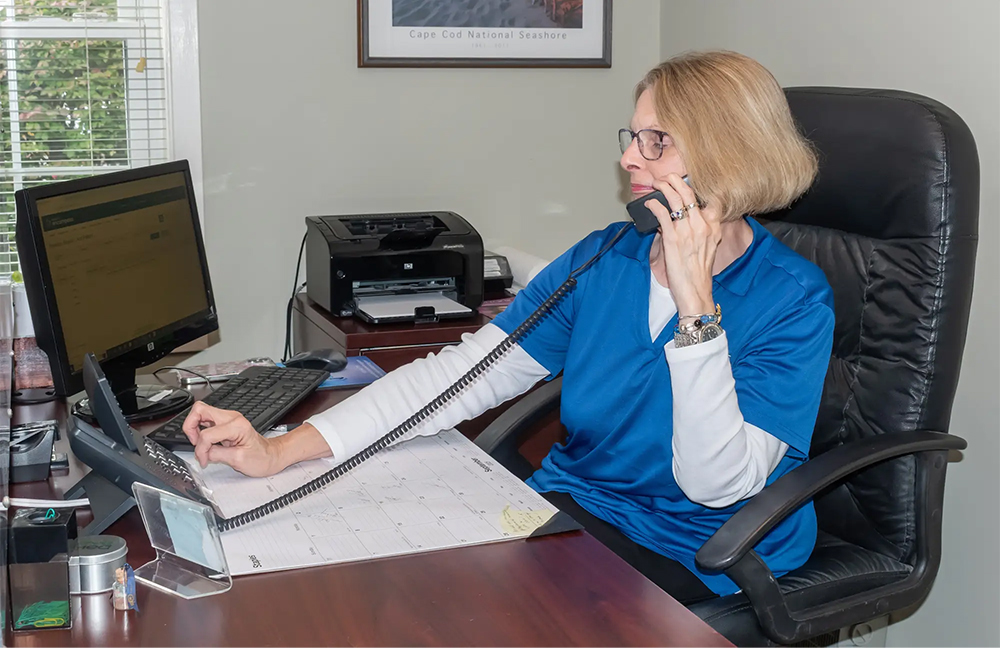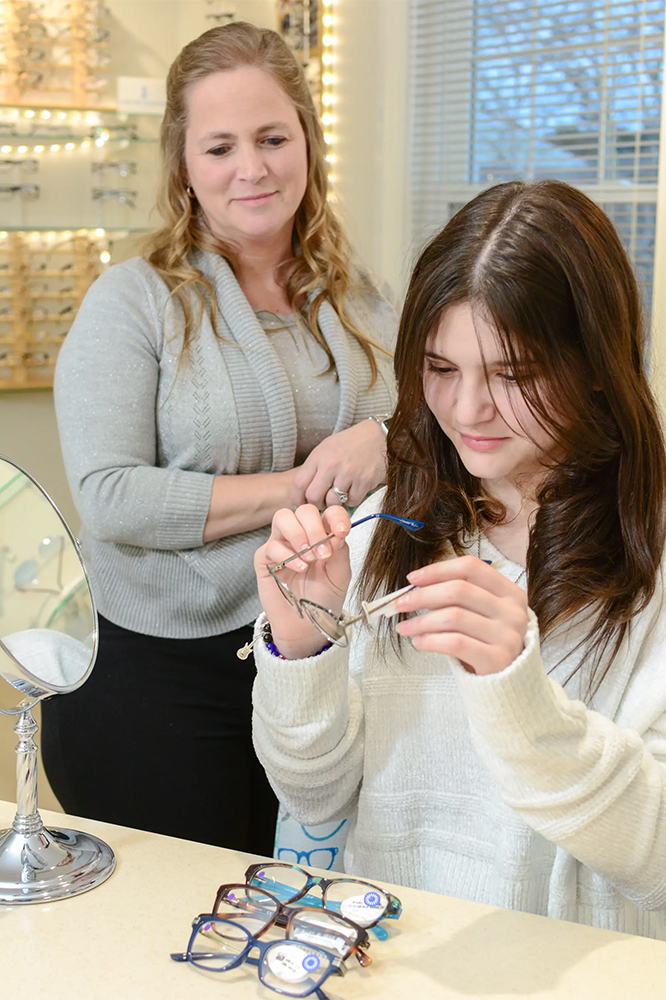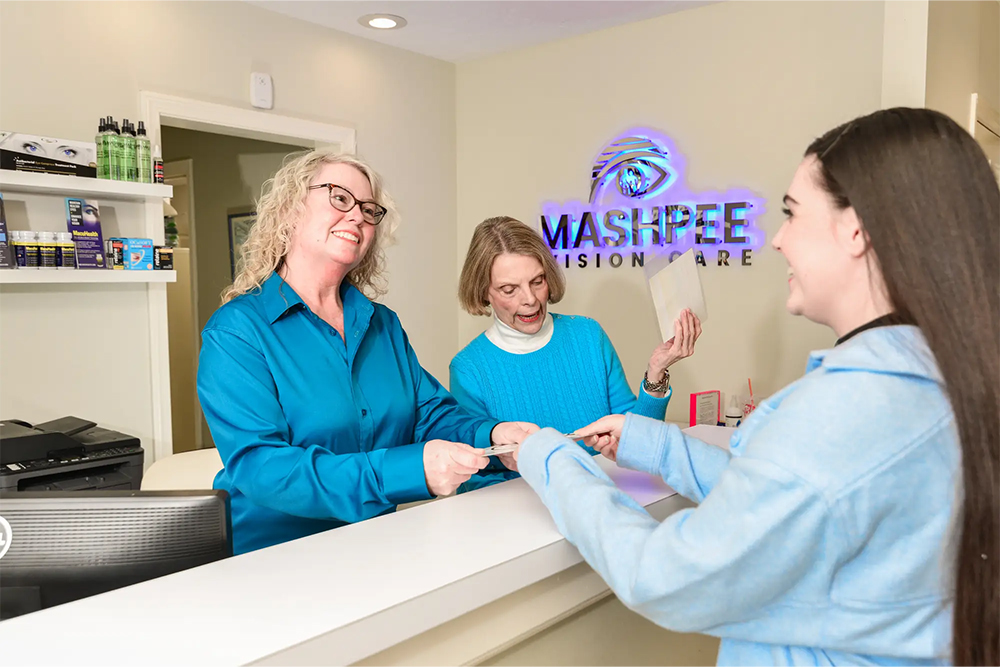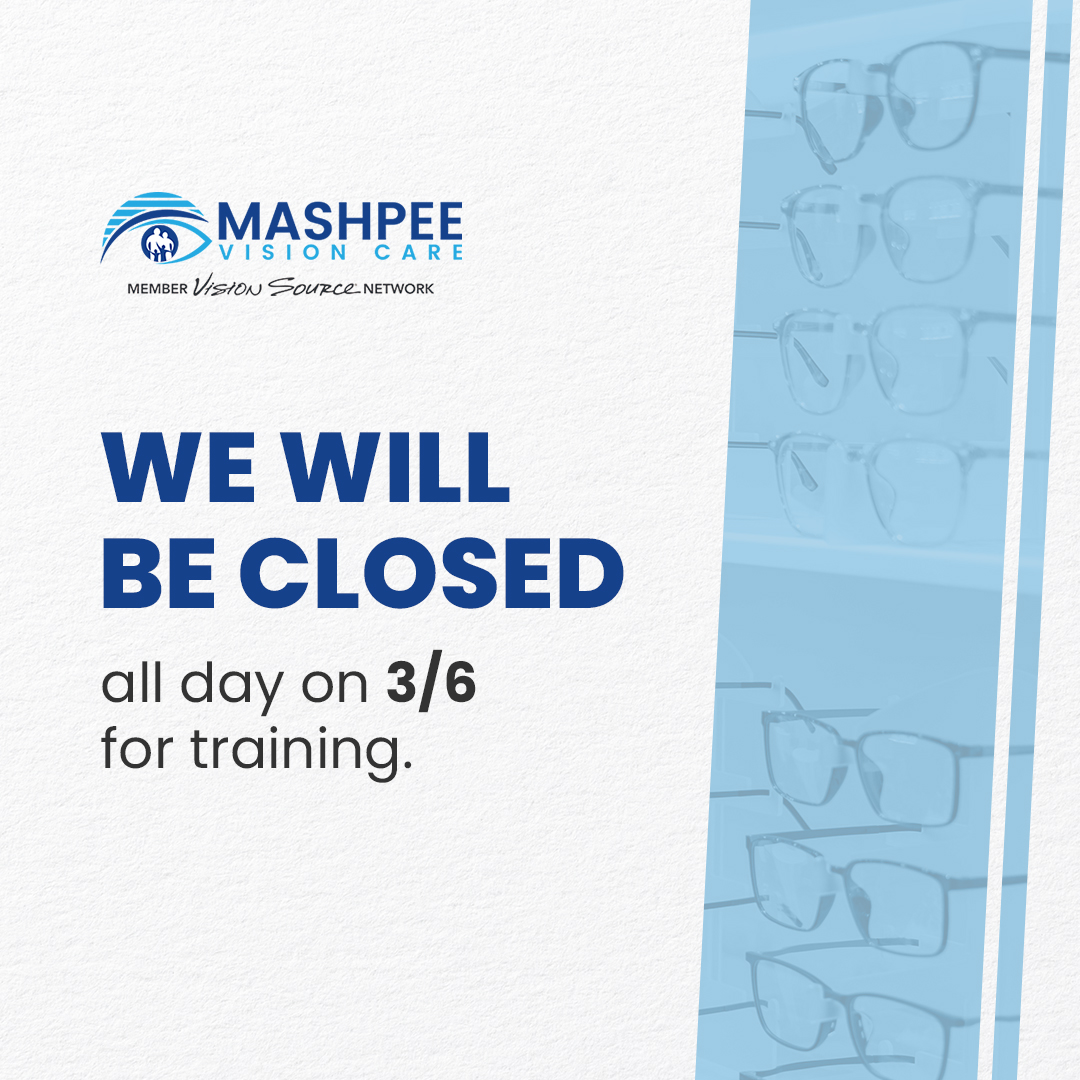
We’ve Got You Covered! Accepted Insurance Plans at Mashpee Vision Care
Families in Massachusetts can count on Mashpee Vision Care for quality eye care that fits their budget. By accepting a variety of insurance plans, we make it easier to prioritize your eye health without added stress.
Our team is here to guide you through the details of your insurance plan, ensuring clarity regarding coverage for various eye care services, including glasses and other vision needs.
Affordable Eye Care - No Insurance Needed
JOIN OUR MEMBERSHIP PLAN TODAY!
Introducing our vision care memberships plans. Think of them like a subscription for your vision care. They're straightforward, give you more control over your care, and in most cases, cost less than self-pay vision insurance.
Ready to make the smart move? Click the button below and enroll today!
Join Our Membership Plan

Some of Our In-Network Plans Include:
At Mashpee Vision Care, we are in-network with all EyeMed plans and offer open access for most other vision plans.
Even if we are not an in-network provider for your specific plan, you can often still use your vision benefits with us. We will submit your benefits on your behalf using a program called Anagram, making the process easy and seamless for you.
Be sure to ask about our in-house vision plans, designed to help you save even more on your eye care needs!
Insurance we accept

Navigating Your Coverage
To inquire about your insurance coverage or to schedule an appointment with your insurance plan, contact us at (508) 477-1802 or email us at info@mashpeevisioncare.com. Our dedicated team is committed to assisting you in understanding and utilizing your insurance benefits for optimal eye care.
Explore the diverse insurance options accepted at Mashpee Vision Care, ensuring accessible and comprehensive coverage for your eye care needs.
Frequently Asked Questions
Most adults should schedule an eye exam every 1–2 years. Children, seniors, and anyone with vision problems or health conditions like diabetes may need more frequent visits.
Common signs include frequent squinting, eye strain, headaches, difficulty seeing at night, or trouble focusing on near or distant objects. An eye exam can confirm if you need corrective lenses.
Yes. Conditions like myopia (nearsightedness) and amblyopia (lazy eye) often appear in childhood. Early detection through pediatric eye exams is important for healthy visual development.
An optometrist provides primary eye care, including exams, prescriptions for glasses or contacts, and management of eye conditions. An ophthalmologist is a medical doctor who can perform surgery in addition to providing general eye care.
Follow the 20-20-20 rule: every 20 minutes, look at something 20 feet away for at least 20 seconds. Adjust screen brightness, maintain good posture, and consider blue light–filtering lenses if needed.
Schedule regular eye exams, eat a diet rich in leafy greens and omega-3s, wear UV-protective sunglasses, and manage chronic conditions like diabetes or high blood pressure.
Yes, with proper hygiene and guidance. Many children successfully wear contacts, especially for sports and active lifestyles. Daily disposable lenses are often the easiest and safest option.
Sudden blurry vision can be a sign of a serious issue, such as retinal problems or other eye diseases. Contact an eye doctor immediately for an evaluation.
Prolonged UV exposure increases the risk of cataracts, macular degeneration, and other eye conditions. Wearing sunglasses with 100% UVA and UVB protection is essential.
Coverage varies by plan. Many vision insurance providers include routine eye exams, glasses, and contacts, but coverage for specialty services may differ. Contact Mashpee Vision Care for details on accepted plans.
















